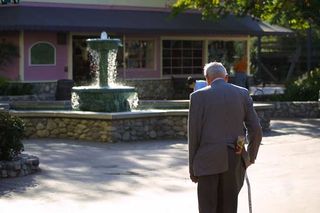Drink From the Fountain of Youth With a Grain of Salt

Two studies announced today could make you downright giddy with youthful optimism, but you'd be wise to take them with a grain of salt.
One says half of babies born in rich nations today could live to be 100, Reuters reports. The speculation is based on the idea that the recent historic rise in life expectancy could continue. Don't bank on it.
Much of the rise in life expectancy over the past several decades has been due to a dramatic decrease in infant mortality rates. Older people aren't living that much longer than they ever did, and in the United States, the improvement in this statistic has been leveling off overall and declining among some populations.
In fact, mortality rates among those who escape childhood haven't changed much for 2,000 years, our columnist Benjamin Radford pointed out recently.
The second study claims a fountain of youth. Well, it's not actually a fountain but a manipulation of genetics (in mice and non-human primates) that simulates calorie reduction.
The genetically altered mice lived 20 percent longer, AFP reports. Good news, if you are a mouse.
But frankly, there have been many, many fountains of youth announced in recent years (including a miraculous pill touted a couple months back) and, yet, aging and death both remain much like taxes. Even calorie reduction, hailed by many as a surefire way to extend human life (as I reported last year), has come into question in recent months (as my colleague Chris Wanjek reported this year). At best, you might get 4-5 years by practically starving yourself, and that's assuming you have the right genetics going in, don't smoke, and otherwise avoid any bad vices.
Sign up for the Live Science daily newsletter now
Get the world’s most fascinating discoveries delivered straight to your inbox.
One might venture some optimism, however, that eventually science will add a few years to the average human lifespan — some researchrs say 10 to 15 more than current averages (about 78 for U.S. residents). Let's just hope they are good years, that society is not overburdened by the influx (or lack of outflux) of older people, and that someone figures out a way to pay for the extra years of health care.
In The Water Cooler, Imaginova's Editorial Director Robert Roy Britt looks at what people are talking about in the world of science and beyond. Find more in the archives and on Twitter.
Robert is an independent health and science journalist and writer based in Phoenix, Arizona. He is a former editor-in-chief of Live Science with over 20 years of experience as a reporter and editor. He has worked on websites such as Space.com and Tom's Guide, and is a contributor on Medium, covering how we age and how to optimize the mind and body through time. He has a journalism degree from Humboldt State University in California.
Most Popular


